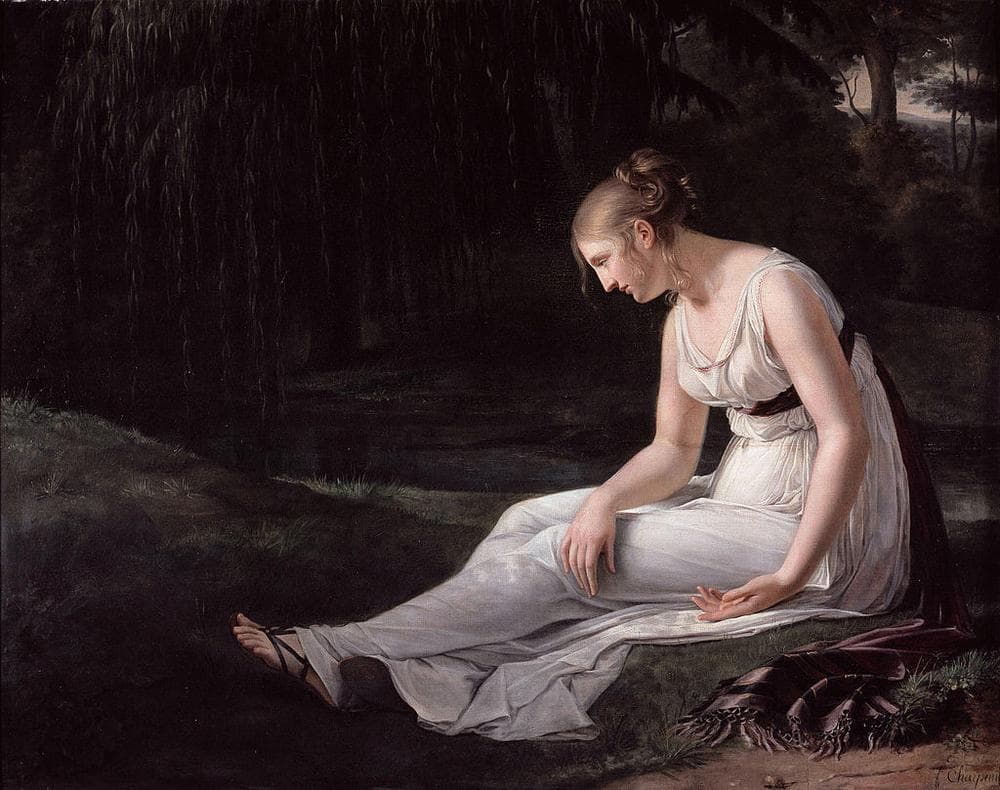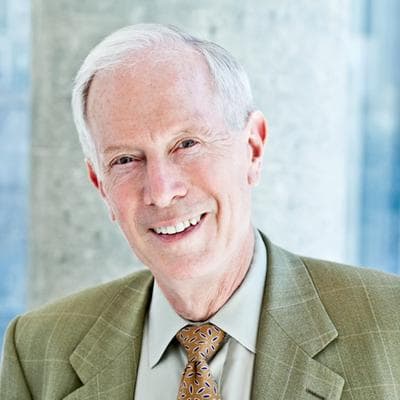Advertisement
'How Everyone Became Depressed' — Is It Really Just Nerves?

The venue: A tiny kitchen at a party for friends of the family, a few months ago.
The cast: Four other middle-aged women and I.
The topic of conversation: Celexa. Wellbutrin. Viibryd. Zoloft. The effects and side effects thereof.
I was the odd woman out, I realized. I was the only one of the five of us not taking an antidepressant (if you don't count exercise.) Something seemed wrong with this picture, and my best guess was along the lines of "When you have a hammer, everything looks like a nail." The hammer, it seemed, was likely the availability of antidepressants.
Right? I put my theory today to Dr. Edward Shorter, author of the provocative and brilliantly titled new book "How Everyone Became Depressed." He is a professor of the history of medicine and also of psychiatry at the University of Toronto, and he blogs regularly for Psychology Today here. Our conversation, lightly edited:
Dr. Shorter: The hammer is the availability of antidepressants. And because it is so widely advertised, people are inclined to construe their disorders as depression, whatever they have. But I think it's important to point out that there is real illness, and these women may well have had a real illness, but it may not necessarily be depression.

And then there is non-real illness — that is, unhappiness, and maybe these four women were just unhappy without having an illness at all. That's a determination that I really can't make from this room. But if they were ill with a nervous disease, let's say this combination of dysphoria and anxiety, maybe antidepressants wouldn't have been the best medication for them. Maybe they should have been on something else.
So is this a fair statement of the thesis of your book? That we're over-focused on 'depression' and in fact, what is so heavily diagnosed as depression could perhaps be better explained by a sort of a return to the old-style thinking about 'nervous disease' or 'nervous exhaustion?' And that this common constellation of symptoms — fatigue, anxiety, somatic complaints or aches and pains, insomnia — is in fact being mistaken for depression when it could better be considered something like nervous disease?
That's the argument exactly. But this becomes relevant for your audience when we talk about treatments, and the treatments for real depression are in fact quite different from the treatments for nervous disease. 'Nervous disease' sounds so antique that we can call real depression 'melancholic depression' and call nervous disease 'non-melancholic depression.' People would probably feel easier with that terminology — but the point is, the treatments are different.
In the book you mention some antique treatments for the antique nerve disease — spas, exercise, rest...
Yes, but that's not what I mean at all. There are also sections in the book about modern treatments for these things. If you have real, melancholic depression, it's important you be treated with effective medications, and the effective treatments in this case would be the old tricyclic antidepressants that were introduced in 1959 and electro-convulsive therapy. Those are anti-suicidal treatments without question because suicide is a real risk in melancholic illness.
Now if the subject turns to non-melancholic depression, to what used to be called nervous disease, the treatments are very different: the treatments would be the benzodiazepine-style drugs introduced in the 1960s, such as Librium and Valium, or even the SSRIs, the Prozac-style drugs, are useful in nervous disease, but the Prozac-style drugs should not be prescribed in people who have melancholia. That message is very definitely in the book.
True! Apologies. The melancholic or major depression aspect is clear to me. But what's so grabby to a layperson about your book is that we do tend to know a zillion people who have this thing you describe, the more minor, nervous disease-type thing. It seems provocative to think about prescribing benzodiazepines to those people.
And there's also this huge community movement against benzodiazepines — which Scientology in particular has latched onto — and lots of physicians are very reluctant today to prescribe benzodiazepines because they fear inducing a terrible addiction in their patients, which is quite an unrealistic fear. So benzodiazepines, for the treatment of depression at least, have really receded; though they're still widely used for the treatment of insomnia.
A physiological question: You use the term nervous disease quite a bit. Are we talking literally about some sort of nerve fatigue?
That's a good question. What caused people in the past to think they had an organic affliction of the nerves was the fact that they were very tired. And so this just implicitly seemed to them that it must be a problem with the nerves. And also they were anxious. And they had the physical symptoms of anxiety: When they woke up in the morning they might have diarrhea, or vomited, or they sweated, their pulses were up.
These are all somatic symptoms of anxiety and the word 'nerves' just springs to the lips here. The word 'psychiatry' does not spring to the lips! If you're chronically tired and aren't restored by a night of sleep, is your first thought, 'Oh I have a psychiatric illness!'? No. But you might well be convinced that your nerves were physically tired.
So is there anything actually to that, physiologically?
No, there's not.
So it's just a metaphor?
But it's a metaphor that is meaningful to many people. It was a sort of a fig leaf to protect them from the P word. In those days, psychiatric illness was thought to be inheritable, and if you had a daughter, for example, who had a serious psychiatric illness, it wouldn't be possible to marry her off. But if you could say 'Helen's problem is that she's nervous,' that's different. Then Helen's problem becomes that her nerves were tired and you could still get married if all you had was a 'nervous disease.'
Mightn't it be possible that in fact we are all just a whole lot more depressed than we used to be?
No. People have always thought they were more depressed than anybody ever in history, because people have always thought they were so much more stressed out than any previous generation. When people speak at cocktail parties, everyone talks about how stressed they are, and it just seems the most natural thing in the world to assume depression would be the consequence of all this stress. And that's not necessarily true at all.
Over the years, ever since the 18th century, you have all these comments about fast-paced society. They didn't use the word 'stress' in the 18th century but they talked about 'the fast pace of modern life,' the same kind of rhetoric you get today. But serious depression has a heavy genetic component, and anything with a genetic component is not going to change that much over the years because your genes don't change.
I noticed you only used the word 'stress' two or three times in the whole book. I kept thinking, 'Aren't these symptoms he's describing classic response to stress?'
Stress is a kind of construct, it’s not really a medical concept. This is something that gave rise to modern neurophysiology, trying to figure out what stress was and exactly what hormones it corresponded to, and people have never gotten very far with that. Because stress is kind of a metaphor, it's not fundamentally a scientific concept, and that's why I don't use it a lot.
The illnesses that I'm talking about are real illnesses, and very often they spring from deep wellsprings in the biology of the brain. And to say, 'Well, all of this is a result of having had to drive too fast to the airport this morning,' is a very superficial analysis that doesn't get to the heart of things at all.
